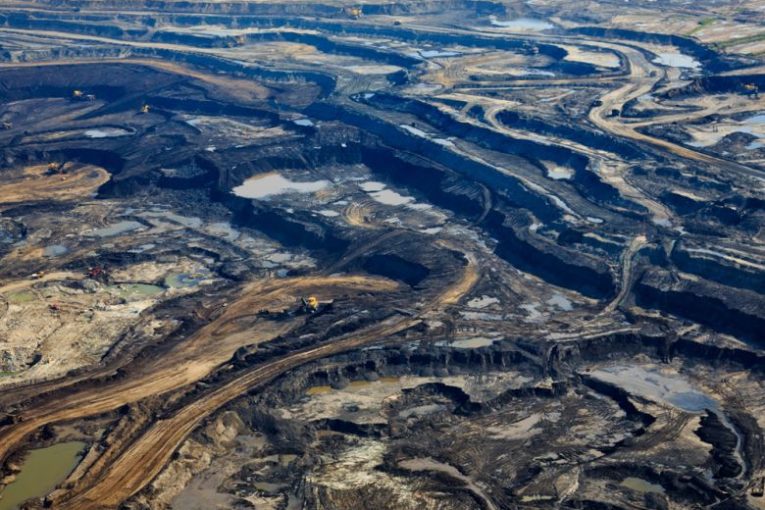
Alberta’s mandatory cut in oil production is likely to sharply drive up Canadian crude prices in coming months, but the extraordinarily “heavy-handed” intervention will not alleviate longer-term issues facing the oilpatch, analysts said.
On Sunday evening Alberta Premier Rachel Notley introduced a production cut of roughly 325,000 barrels per day, or just under nine per cent of the Alberta market, as a way to curb the record-high oil price discount faced by Canadian producers. The curbs will begin January 2019.
The Alberta government hopes to roughly cut in half the 35 million barrels of oil currently sitting in storage across the province — a reduction that analysts said could be achieved in a matter of months.
“You get there by next spring, which is very quick,” said Michael Tran, analyst at RBC Capital Markets in New York.
“While 325,000 barrels per day is not going to meaningfully impact the global oil balance, it’s extremely influential for really kickstarting Canadian oil prices,” Tran said, adding that the cuts were a “heavy-handed mechanism” to raise prices.
Western Canadian Select, the heavy oil benchmark in Canada, soared nearly 37 per cent on the news, up to around US$30 per barrel, according to Bloomberg data, with the blend trading in the low $20 range below the U.S. crude, compared WITH $32 before the announcement.
Rory Johnston, analyst at Scotiabank in Toronto, said the cuts could narrow the discount for WCS to around US$20 in the first quarter of 2019, down from an earlier estimate of around US$29.
The decision by Notley to curb oil supplies marks the most substantial market intervention in decades, and comes after discounts for Canadian heavy oil breached US$50 in recent months, the highest on record.
Alberta’s pipeline woes have spurred governments to seek out ways to help get their oil to market. Notley also recently announced the province would buy 120,000 barrels per day of rail capacity to move more barrels to refineries. In August, Ottawa bought the Alberta-to-B.C. Trans Mountain pipeline from Kinder Morgan Inc., but a court ruling has halted construction on the project.
While producers said they would comply with the mandatory cuts, executives from Canada’s Suncor Energy Inc., Husky Energy Inc. and Imperial Oil, integrated producers with domestic refinery and upgrading capacity, expressed disappointment.
“We believe the market is working and view government-ordered curtailment or other interventions as possibly having serious negative investment, economic and trade consequences,” Husky said in a statement.
Suncor said in a statement Monday that price differentials were already narrowing.
“Suncor believes the market is the most effective means to balance supply and demand and normalize differentials,” it said.
However, other major producers, such as Cenovus Energy Inc. and Canadian Natural Resources Ltd., were vocal in their support.
“At $35 or $45 differentials – the lion’s share of companies in this industry are barely breaking even or actually losing money,” Cenovus Chief Executive Alex Pourbaix said in an interview.
“When you are just breaking even or you are actually losing money, you can do nothing other than the bare minimum. … It’s pure survival mode.”
Alberta’s intervention also comes just after a sharp nosedive in global oil prices last month, prompting the Organization of Petroleum Exporting Countries to consider cutting as much as 1.3 million barrels per day of production, according to news reports. The group, led by Saudi Arabia and more recently Russia, is set to meet in Vienna on Dec. 6 and 7.
A wider-spread collapse in oil prices could wash away much of the gains from Alberta’s production cuts, several analysts said Monday.
“It should always be kept in mind that oil is a global industry, and moves in the benchmark WTI price can outweigh changes in the spread, leaving Canadian producers in the lurch,” said Brian DePratto, a senior economist at TD Bank Group.
DePratto expects the production cuts to reduce Canadian real GDP growth by between 0.1 per cent and 0.2 per cent in 2019. In Alberta, the impact could be much higher, between 0.6 per cent and 1.3 per cent over the same period.
Jackie Forrest, senior director at the ARC Energy Research Institute in Calgary, said some companies should have invested in rail capacity sooner in order to ease pipeline shortages. Still, she said many pipeline delays were hard to predict amid assurances by industry and government that pipelines could be successfully built to tidewater.
“Industry as a whole should have a lot more rail capacity than we do right now, and we should have thought about it years in advance,” she said.
Alberta’s decision will “clear the supply glut a lot faster than it would have without intervention,” Forrest noted.
The production curbs will provide some cushion for producers, but will not eliminate the discount on heavy Canadian oil that has persisted for many years, said Jihad Traya, manager at energy consultancy firm Solomon Associates LLC in Calgary. Canadian producers have for years accepted lower prices for their crude, particularly recently, as demand for high-sulphur, heavy crudes continues to weaken.
“Pipelines only solve one component of this,” Traya said.
In written comments Monday, energy minister Amerjeet Sohi said that Ottawa shares in “Alberta’s frustration at the ongoing and unacceptable discount” on Canadian crude. Sohi had last week asked the National Energy Board about ways to make Canada’s pipeline system more efficient.
Notley, meanwhile, has called on the federal government to step up.
“We don’t actually need Ottawa’s sympathy. We need Ottawa’s full attention,” Notley said prior to a cabinet meeting Monday morning.
The production curbs announced by Alberta targets producers that pump out more than 10,000 bpd, or just 25 of the roughly 300 oil companies currently operating in the province. After the province achieves an 8.7 per cent reduction in supply, it will then lower production cuts to 95,000 barrels per day, ending in December 2019.
[email protected]
With files from Thomson Reuters 2018
You can read more of the news on source
